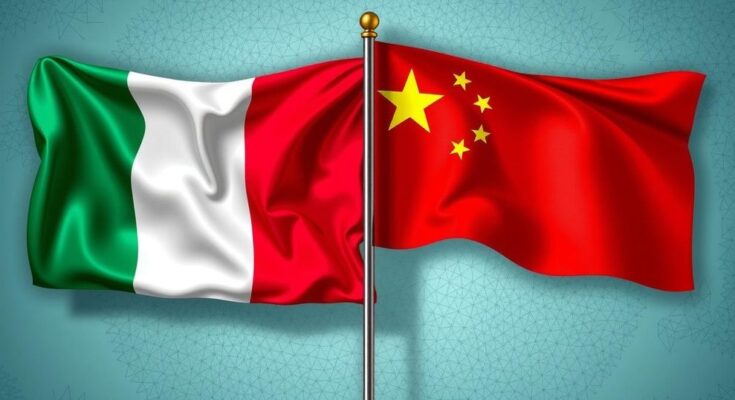The Sea Empowerment Research Centre has warned that Nigeria’s currency swap deal with China could hinder its participation in the Africa Continental Free Trade Area (AfCFTA) by increasing reliance on the Chinese Yuan and potentially complicating trade relations with other African countries. It raises concerns about fostering competition against local businesses and does not address existing trade barriers among African nations.
A group known as the Sea Empowerment Research Centre has indicated that the recent currency swap agreement between Nigeria and China could pose significant challenges to Nigeria’s role in the Africa Continental Free Trade Area (AfCFTA). According to Mr. Eugene Nweke, the group’s leader, the deal may lead to increased reliance on the Chinese Yuan, thereby undermining Nigeria’s engagement with other African nations and complicating its commitment to the goals of the AfCFTA.
The currency swap, valued at 15 billion yuan (approximately 2 billion USD), is intended to enhance trade and investment between Nigeria and China. The People’s Bank of China stated that the arrangement seeks to facilitate the usage of the naira and yuan in bilateral trade while and reducing dependency on third-party currencies like the US dollar. However, Mr. Nweke has expressed concerns that such a focus may inadvertently weaken Nigeria’s trade initiatives within the African continent.
Mr. Nweke emphasized that the AfCFTA’s mission is to foster intra-African trade through the promotion of African currencies. He opined that by primarily concentrating on trade with China, Nigeria may hamper its ability to engage effectively with other African countries, thus impeding the objective of economic integration that the AfCFTA aims to achieve. Furthermore, he highlighted that the currency swap deal could disproportionately benefit Chinese products in the Nigerian market, thereby intensifying competition against local businesses, which contradicts the AfCFTA’s objective to bolster African industries.
In addition, Mr. Nweke pointed out that the current currency deal does not resolve existing tariff and non-tariff barriers between Nigeria and other African nations. Given that AfCFTA seeks to eliminate such impediments, the currency agreement may further complicate Nigeria’s position within the broader framework of African trade. He also noted that the existing trade imbalance, with Nigeria importing more from China than it exports, could lead to a considerable outflow of foreign exchange, potentially straining Nigeria’s external reserves. Moreover, he cautioned that fluctuations in currency values could render Nigerian exports less competitive in the Chinese market, particularly if the naira depreciates significantly against the yuan.
While acknowledging that the currency swap holds potential for amplifying trade and investment—which has seen trade between Nigeria and China account for nearly 30% of Nigeria’s total trade—he stresses the need for consideration about its implications for Nigeria’s broader economic interests within the AfCFTA framework.
The Africa Continental Free Trade Area (AfCFTA) is an initiative encompassing 54 African countries, aimed at promoting intra-African trade through the reduction of tariffs and the elimination of trade barriers. This agreement is seen as a pivotal step towards economic integration and the enhancement of the continent’s sourcing identity. Nevertheless, trade agreements such as currency swaps can complicate these efforts by entrenching trade relationships with dominant partners and potentially detracting from local African market dynamics. The renewal of the currency swap agreement between Nigeria and China, worth 15 billion yuan, reflects Nigeria’s ongoing strategy to bolster its trade relationship with China. However, experts warn that this might lead to an over-reliance on the yuan at the expense of engaging fully with other African economies, revealing the complexities of navigating foreign partnerships amid broader continental objectives.
In summary, the currency swap deal between Nigeria and China may present substantial challenges for Nigeria’s engagement in the AfCFTA. The dependency on the Chinese Yuan, coupled with a potential increase in competition for local businesses and the failure to address trade barriers among African nations, could compromise the primary goals of fostering intra-African trade and economic integration. Therefore, while the agreement promises enhanced trade and investment, it must be approached with caution to avoid undermining Nigeria’s position and objectives within the African trading landscape.
Original Source: punchng.com




